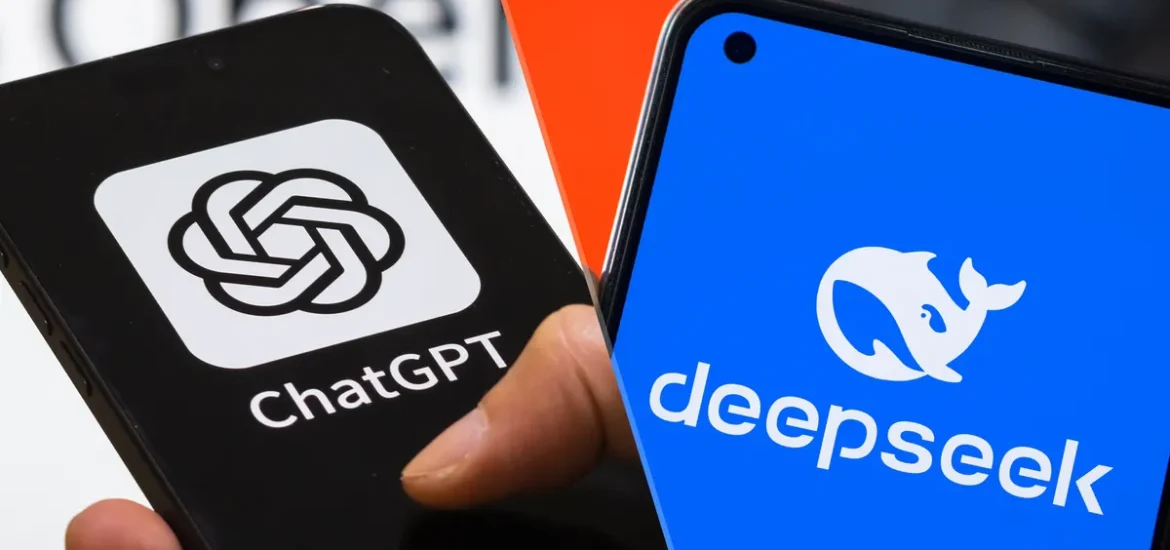The world of AI is constantly evolving, with new models and technologies emerging at a rapid pace. Two names that have been making headlines recently are DeepSeek and ChatGPT. Both are large language models (LLMs) with impressive capabilities, but they also have some key differences. In this blog post, we’ll take a closer look at DeepSeek and ChatGPT, comparing their strengths and weaknesses to help you understand which model might be a better fit for your needs.
What is DeepSeek?
DeepSeek is a new LLM developed by a Chinese AI startup of the same name. It has gained attention for its impressive performance and its unique approach to training AI models. DeepSeek uses a “Mixture of Experts” (MoE) architecture, which allows it to be more efficient and cost-effective than traditional LLMs. This efficiency has allowed DeepSeek to achieve comparable performance to ChatGPT with significantly lower training costs.
What is ChatGPT?
ChatGPT, developed by OpenAI, is perhaps the most well-known LLM in the world. It has captured the public’s imagination with its ability to generate human-like text, translate languages, write different kinds of creative content, and answer questions in an informative way. ChatGPT has been widely adopted for various applications, from chatbots and virtual assistants to content creation and research.
DeepSeek vs. ChatGPT: Key Differences
While both DeepSeek and ChatGPT are powerful LLMs, they have some key differences:
- Cost-effectiveness: DeepSeek’s MoE architecture makes it significantly more cost-effective to train and operate than ChatGPT. This could make DeepSeek a more attractive option for businesses and developers looking to integrate LLMs into their applications.
- Performance: In various benchmark tests, DeepSeek has demonstrated comparable or even superior performance to ChatGPT in certain tasks. However, it’s important to note that both models are constantly being updated and improved, so their relative performance may change over time.
- Accessibility: ChatGPT is currently more widely accessible, with a user-friendly interface and API that allows developers to easily integrate it into their applications. DeepSeek is still relatively new, and its accessibility may be more limited at this time.
- Data Privacy: As a Chinese company, DeepSeek is subject to China’s data privacy laws, which may be a concern for some users. OpenAI, on the other hand, is based in the United States and subject to US data privacy laws.
Which Model is Right for You?
The best model for you will depend on your specific needs and priorities. If cost-effectiveness is a major concern, DeepSeek may be a more attractive option. If you need a model that is widely accessible and has a proven track record, ChatGPT may be a better fit. It’s also important to consider factors such as data privacy and the specific tasks you need the model to perform.
The Future of LLMs
Both DeepSeek and ChatGPT represent significant advancements in the field of LLMs. As these models continue to evolve, we can expect to see even more impressive capabilities and applications emerge. The competition between these and other LLMs will likely drive further innovation and make these powerful technologies more accessible to a wider audience.
In conclusion, DeepSeek and ChatGPT are both powerful LLMs with unique strengths and weaknesses. By understanding these differences, you can make an informed decision about which model is best suited for your needs. As the field of AI continues to advance, it will be exciting to see how these and other LLMs shape the future of technology.

